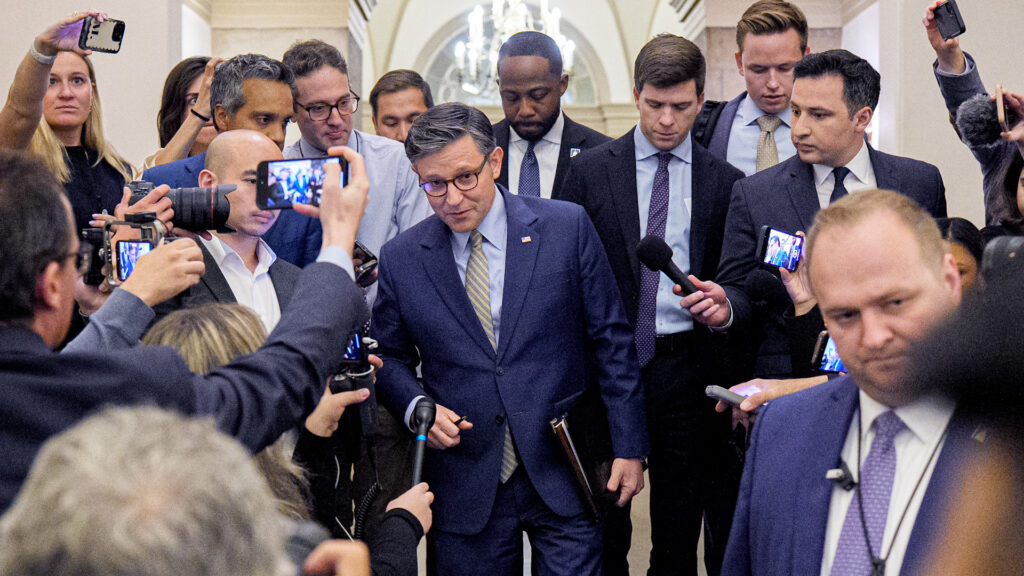The House narrowly passed President Donald Trump’s tax and spending bill Thursday morning after an all-night session, handing the president a major legislative win. The vote was 215-214, with Republicans Thomas Massie of Kentucky and Warren Davidson of Ohio joining all Democrats in opposition. Rep. Andy Harris of Maryland voted “present.”
House Speaker Mike Johnson (R-La.) met with Trump and conservative Republicans to rally support amid GOP divisions. Democrats attempted to stall debate through procedural motions and promised strong resistance. “We are going to fight back and we are going to fight like hell,” said Rep. Jim McGovern (D-Mass.).
What does the bill include?
The bill would make the 2017 Trump-era tax cuts permanent and introduce new breaks for tipped wages and auto loans. A revised amendment unveiled Wednesday also lifts the cap on state and local tax deductions (SALT) to $40,000 for households earning up to $500,000, a concession to moderate Republicans from high-tax states like New York and California.
The package phases out some Biden-era clean energy tax credits more quickly. New renewable energy projects would need to start construction within 60 days of the bill’s enactment and be operational by the end of 2028, with nuclear projects granted the same deadline. Other provisions include delisting silencers from the National Firearms Act and allocating $12 billion in border security reimbursements to states.
What changes did Republicans make to win support?
To satisfy hardliners in the House Freedom Caucus, GOP leaders agreed to move the start date for Medicaid work requirements from 2029 to the end of 2026. The amended bill also penalizes future Medicaid expansion and offers new incentives for states that choose not to expand the program. These changes are projected to reduce federal spending, but could kick millions of Americans off of their insurance.
What happens next?
The bill now moves to the Senate, where Republicans have already indicated they plan to revise the package. GOP leaders hope to deliver a final version to Trump’s desk by July 4. The Congressional Budget Office estimates the legislation would add $2.3 trillion to the national debt while eliminating health care coverage for 8.6 million people.
contributed to this report.


